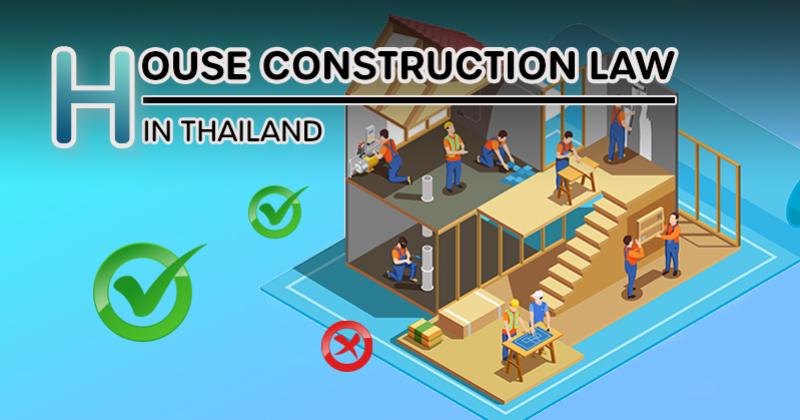
สร้างเมื่อ : 13 ก.พ. 2567
แก้ไขล่าสุดเมื่อ : 13 ก.พ. 2567
Leasehold vs Freehold
ลงทุนเเบบไหนใช่สำหรับคุณ
คอนโด Leasehold คือ คอนโดที่มีการถือกรรมสิทธิ์เป็นเจ้าของตามกำหนดระยะเวลา ผู้เป็นเจ้าของสินทรัพย์ดังกล่าวต้องชำระค่าเช่าตามอัตราค่าเช่าที่กำหนดเป็นรายงวด เมื่อสัญญาคอนโดครบกำหนดสัญญาที่ทำไว้ กรรมสิทธิ์เป็นเจ้าของจะกลับคืนสู่ผู้ให้เช่าคอนโดทันที โดยคอนโด Leasehold มีลักษณะ ดังนี้
– เจ้าของต้องทำสัญญากับผู้ให้เช่าอีกต่อหนึ่ง ซึ่งมีกำหนดถือครองกรรมสิทธิ์เป็นเจ้าของสินทรัพย์ 30 ปี ตามกฎหมาย
– เจ้าของอาจเรียกร้องขอจัดการเรื่องก่อสร้าง ต่อเติม หรือตกแต่งกับผู้ให้เช่าได้ตามสมควร
– เจ้าของต้องจ่ายค่าธรรมเนียมสำหรับบำรุงรักษา ค่าบริการรายปี รวมทั้งค่าประกันตึก
– เจ้าของต้องจ่ายค่าเช่าแก่ผู้ให้เช่าตามกำหนดสัญญา
– เจ้าของจะได้รับอนุญาตจากผู้ให้เช่าในการจัดการที่เกี่ยวข้องกับสินทรัพย์นั้น
– เจ้าของอาจถูกจำกัดสิทธิตามข้อบังคับของผู้ให้เช่า
– เจ้าของจะถูกยกเลิกสัญญาในกรณีที่ไม่ปฏิบัติตามข้อตกลงของสัญญาเช่าคอนโด
2. คอนโด Freehold คืออะไร
คอนโด Freehold คือ คอนโดที่มีการถือกรรมสิทธิ์เป็นเจ้าของสินทรัพย์ตลอดไป กล่าวคือ ผู้ที่ลงทุนซื้อคอนโดแบบนี้จะได้สิทธิเป็นเจ้าของคอนโดแบบขาด ไม่มีกำหนดระยะเวลาสิ้นสุดของการเป็นเจ้าของคอนโด นอกจากนี้ ผู้ที่ลงทุนซื้อคอนโดแบบนี้ จะได้รับกรรมสิทธิ์ต่าง ๆ ดังนี้
– ไม่จำเป็นต้องจ่ายค่าเช่าตามกำหนดสัญญาใด ๆ
– มีหน้าที่รับผิดชอบดูแลรักษาสภาพอาคาร
– ถือครองกรรมสิทธิ์เป็นชื่อของตัวเอง
จริง ๆ แล้ว การลงทุนคอนโดไม่มีสูตรสำเร็จตายตัวว่าแบบไหนดีกว่าหรือดีที่สุด จะมีก็แต่เหมาะสมและเข้ากับความต้องการของเรามากที่สุด การเปรียบเทียบด้านต่าง ๆ ของคอนโดประเภท Leasehold กับ Freehold อาจทำให้เห็นความแตกต่างที่ตอบโจทย์ความต้องการของผู้ลงทุนแต่ละคนได้ ดังนี้
การถือครองของชาวต่างชาติ
– คอนโค Leasehold ถือครองได้ไม่จำกัด
– คอนโด Freehold ถือครองได้อัตรา 49% จากจำนวนยูนิตทั้งหมด
มูลค่าสินทรัพย์
คอนโด Freehold จะมีแนวโน้มของมูลค่าสินทรัพย์จะปรับตัวสูงขึ้นในอนาคตตามแนวโน้มราคาที่ดินที่เพิ่มขึ้น ซึ่งมากกว่าคอนโด Leasehold
วันนี้ทางเพจของเราได้มานำเสนอข้อมูลเกี่ยวกับการลงทุนแบบ Freehold และ Leasehold ประกอบการขอจดทะเบียนหวังว่าจะเป็นประโยชน์ต่อทุกท่านที่เข้ามาอ่านนะคะและทางเพจ The Property Center ยังมีบทความดีๆอีกมากมายสามารถเข้ามาอ่านกันได้ ทั้งนี้ลูกเพจท่านใดต้องการให้ทางต้องการหาบ้านหรืออสังหาริมทรัพย์อื่นๆ สามารถนำทรัพย์ของท่านมาฝากเราขายได้ เรามีลูกค้าที่ติดต่อเรามาทุกวันปล่อยให้มืออาชีพทำงานแทนคุณแล้วคุณรอรับยอดขายอย่างเดียว The Property Center ยินดีต้อนรับท่านเจ้าของบ้านทุกท่านค่ะ เรามีทีมงานโพสต์ตามสื่อออนไลน์ต่าง ๆ จัดทำโฆษณาลงโซเชี่ยวและมาร์เก็ตเพลสต่างๆ แทนท่าน บริการเหล่านี้ฟรี เพียงแต่เราคิดค่านายหน้า 3-5% เท่านั้น ติดต่อเราด่วนค่ะ
ขอขอบคุณข้อมูลจาก
https://www.home.co.th/living/freehold-vs-leasehold-52550

